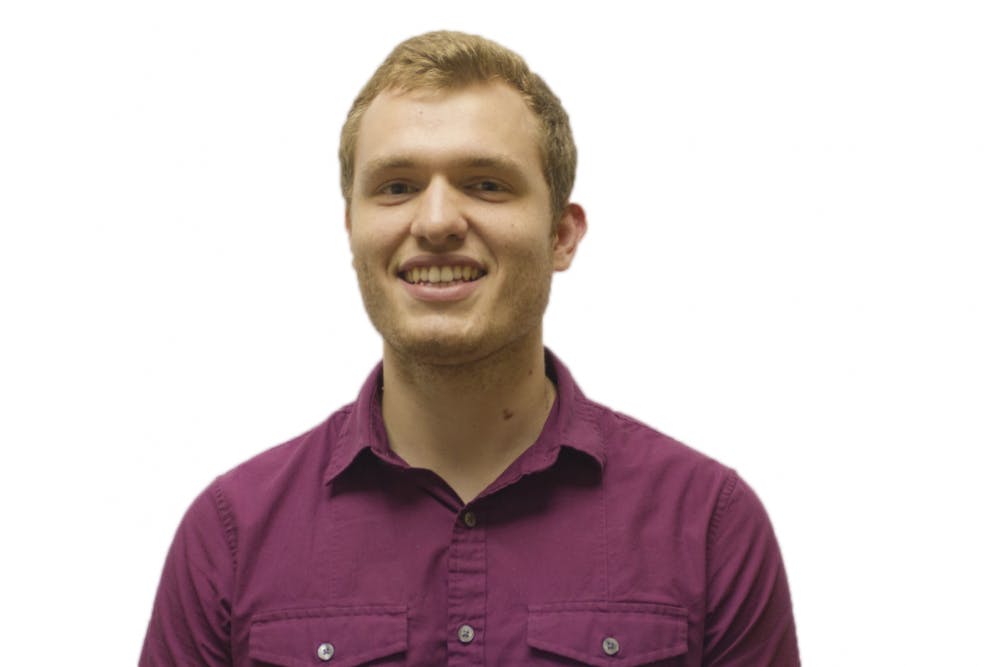"Love your body”: Hard advice to follow

I think it is unfair to ask everyone to love their own bodies. For some of us, that truly seems like an impossible feat. As someone who used to have an eating disorder, my default setting for years was to hate my body. I generally feel very detached from the common discourse surrounding body positivity. “Love your body!” “All bodies are beautiful!” These are great, inspiring phrases, but I suffered from a mental disorder for years — the patterns and thought processes of which have left some lasting marks on me. No one can or should expect me to accept myself in the blink of an eye.
Do I love my body? No, I definitely do not with any sense of that word. Do I hate my body? Not anymore. And that is what matters. I once hated my body enough that I normalized unhealthy cycles of fasting and binging just to try to lose some weight. I wasted time and energy for years hating my body. I kept my eating habits as secretive as possible, yet fervently recorded every detail of what I ate. It was my obsession.
I am sure I am not the only person who is immensely proud of the progress they have made with their own self-image, though much remains to be done. More often than I should, I still self-police what I eat and how I exercise. I still sometimes opt for less comfortable clothing because I look “less fat” in it. I still feel like my self-confidence can often be too closely linked to my body image. But I know these are unhealthy things now. Unlike in high school, when I tried to normalize all of these things for the joys I assumed would come with losing weight, I now recognize them as unhealthy and self-harmful, and I try my damndest to keep them in check. Those voices have quieted over the past few years, but I don’t know how long it will be before they cease completely. Perhaps never.
If someone tells me “love your body,” it honestly means next to nothing to me, though I recognize the intention. I have zero reference for what “loving your body” looks like. Should I be considered a failure in the eyes of the body positivity movement? No. I know just how far I have come. Progress has not been linear, straightforward or quick. But I can honestly say that I do not hate my body as I once did. I will admit that I do not love my body either — and, for right now, I am fine with that. I want this for myself one day, and for everyone else who is not at that point yet. But I will not deceive myself by saying that reaching the point of self-love will come easily or soon. So, to anyone else reading this who feels that loving your body seems insurmountably difficult, I want to tell you there is nothing wrong with that. If you are on a road toward self-love — that nonlinear, complicated, long road — then that alone is worthy of celebration and pride. Do not feel pressured to love your body right now. The journey you have taken to get to this point is enough. I hope that it ends with a complete, self-sufficient, amazing love of yourself and your body. But, for now, I congratulate you on how far you have come.
More from The Rice Thresher
You should apply to join Chao College
For many of you, your residential college is the heart of your Rice experience. You’ve cheered for it, led within it and maybe even helped shape its traditions. It’s where you experienced Orientation Week, shared countless meals, stayed up too late in deep conversations and formed lifelong friendships.
Ask a Rice Philosopher: Why is it so easy for me to dislike members of the Honor Council?
The question of the week asks, “Why is it so easy for me to dislike members of the Honor Council simply for being on the Honor Council, when realistically, I know that cheating is bad and there should be consequences for it?”
Anonymous posting gives voice to campus hate
People at Rice used to have opinions. They used to write op-eds with charming titles, like “Dry your eyes, young men: Baldness is in” and letters to the editor accusing the Backpage of everything from libel to not including enough personal attacks (both in the same week, no less).


Please note All comments are eligible for publication by The Rice Thresher.